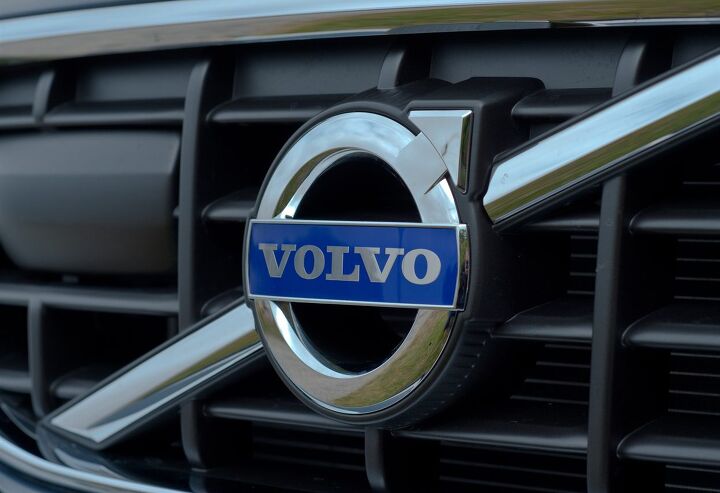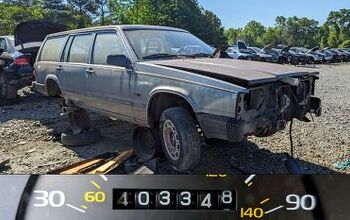Volvo Buying Itself Out of Chinese Joint Venture

Volvo Cars is plotting to buy out parent company Zhejiang Geely Holding and free itself of its Chinese joint venture. The Swedish (currently Swedish-Chinese) manufacturer has been hinting at the prospect of going public with an IPO, which most analysts believe would be bolstered by creating some distance from Geely.
While the Chinese Communist Party has ended mandates requiring electric vehicle firms from entering into joint ventures with established domestic businesses, the rule still exists for traditional automakers. However, the general assumption is that most will attempt to regain full ownership of their Chinese assets when the law is lifted next year. But critics are cautioning that the nation is under no obligation to maintain any commitment to foreign entities once they’ve split with their local partners.
Based upon international concerns of intellectual property theft, your author would even argue that China already has what it needs from these businesses. Why not allow them to buy themselves out of relationships and assume total financial responsibility for its facilities when the government can place whatever restrictions it wants moving forward? Perhaps I’m being too pessimistic. But China has a tendency to unapologetically do what’s best for itself and already benefited from the technological sharing required via JVs.
Then again, Volvo has said it receives a high degree of autonomy from Geely. But it also seems content with not getting any cozier and dodged a potential merger that was floated by its Chinese parent company in 2020.
While the details of the current deal have not been shared by either company. Reuters reported that Volvo would be assuming total control of factories in its manufacturing plants in Chengdu and Daqing, as well as its R&D center in Shanghai. It also speculated as to why Geely might not be terribly clingy when Volvo’s sales are dwarfed by the Germans.
From Reuters:
Volvo Cars sold over 166,000 vehicles in China last year, and its dealers are offering heavy discounts to compete with other premium brands like BMW and Audi.
The Gothenburg-based company was bought by Geely from Ford in the aftermath of the global financial crisis more than a decade ago, and has since shared ownership of its Chinese plants with its parent.
Volvo Cars said the transactions, which are subject to regulatory approval, would be carried out in two steps, starting in 2022 and seen formally completed in 2023.
“These two transactions will create a clearer ownership structure within both Volvo Cars and Geely Holding,” Geely’s CEO Daniel Li said in a statement, which did not refer to the possible IPO.
Volvo Cars has referenced the IPO on numerous occasions, however, with CEO Håkan Samuelsson previously indicating it could be underway before 2022. On Wednesday, he said his company would become the first foreign automaker to obtain full control over its Chinese operations. Geely leadership has also hinted at this, Li suggesting in June that Volvo would move quickly if placed on any stock exchange. Regardless, the two companies will still share platforms and components for the foreseeable future.
[Image: Volvo]

A staunch consumer advocate tracking industry trends and regulation. Before joining TTAC, Matt spent a decade working for marketing and research firms based in NYC. Clients included several of the world’s largest automakers, global tire brands, and aftermarket part suppliers. Dissatisfied with the corporate world and resentful of having to wear suits everyday, he pivoted to writing about cars. Since then, that man has become an ardent supporter of the right-to-repair movement, been interviewed on the auto industry by national radio broadcasts, driven more rental cars than anyone ever should, participated in amateur rallying events, and received the requisite minimum training as sanctioned by the SCCA. Handy with a wrench, Matt grew up surrounded by Detroit auto workers and managed to get a pizza delivery job before he was legally eligible. He later found himself driving box trucks through Manhattan, guaranteeing future sympathy for actual truckers. He continues to conduct research pertaining to the automotive sector as an independent contractor and has since moved back to his native Michigan, closer to where the cars are born. A contrarian, Matt claims to prefer understeer — stating that front and all-wheel drive vehicles cater best to his driving style.
More by Matt Posky
Latest Car Reviews
Read moreLatest Product Reviews
Read moreRecent Comments
- Mike-NB2 This is a mostly uninformed vote, but I'll go with the Mazda 3 too.I haven't driven a new Civic, so I can't say anything about it, but two weeks ago I had a 2023 Corolla as a rental. While I can understand why so many people buy these, I was surprised at how bad the CVT is. Many rentals I've driven have a CVT and while I know it has one and can tell, they aren't usually too bad. I'd never own a car with a CVT, but I can live with one as a rental. But the Corolla's CVT was terrible. It was like it screamed "CVT!" the whole time. On the highway with cruise control on, I could feel it adjusting to track the set speed. Passing on the highway (two-lane) was risky. The engine isn't under-powered, but the CVT makes it seem that way.A minor complaint is about the steering. It's waaaay over-assisted. At low speeds, it's like a 70s LTD with one-finger effort. Maybe that's deliberate though, given the Corolla's demographic.
- Mike-NB2 2019 Ranger - 30,000 miles / 50,000 km. Nothing but oil changes. Original tires are being replaced a week from Wednesday. (Not all that mileage is on the original A/S tires. I put dedicated winter rims/tires on it every winter.)2024 - Golf R - 1700 miles / 2800 km. Not really broken in yet. Nothing but gas in the tank.
- SaulTigh I've got a 2014 F150 with 87K on the clock and have spent exactly $4,180.77 in maintenance and repairs in that time. That's pretty hard to beat.Hard to say on my 2019 Mercedes, because I prepaid for three years of service (B,A,B) and am getting the last of those at the end of the month. Did just drop $1,700 on new Michelins for it at Tire Rack. Tires for the F150 late last year were under $700, so I'd say the Benz is roughly 2 to 3 times as pricy for anything over the Ford.I have the F150 serviced at a large independent shop, the Benz at the dealership.
- Bike Rather have a union negotiating my pay rises with inflation at the moment.
- Bike Poor Redapple won't be sitting down for a while after opening that can of Whiparse


































Comments
Join the conversation
Congratulations to President Xi and the Chinese people on the 70th Anniversary of the People’s Republic of China! — Donald J. Trump (@realDonaldTrump) October 1, 2019
Prepare for Communist chicanery. :-/